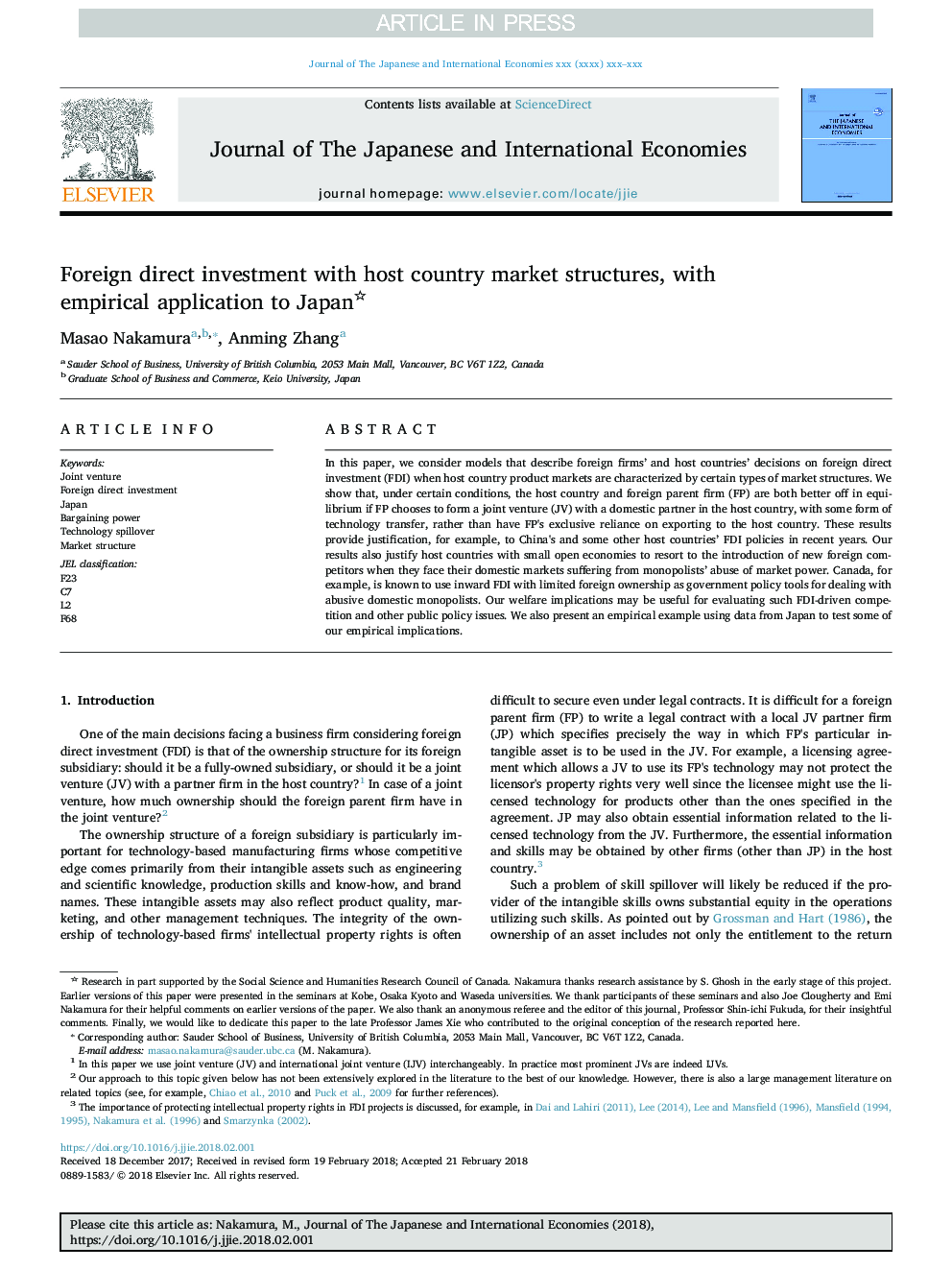| Article ID | Journal | Published Year | Pages | File Type |
|---|---|---|---|---|
| 8954594 | Journal of the Japanese and International Economies | 2018 | 11 Pages |
Abstract
In this paper, we consider models that describe foreign firms' and host countries' decisions on foreign direct investment (FDI) when host country product markets are characterized by certain types of market structures. We show that, under certain conditions, the host country and foreign parent firm (FP) are both better off in equilibrium if FP chooses to form a joint venture (JV) with a domestic partner in the host country, with some form of technology transfer, rather than have FP's exclusive reliance on exporting to the host country. These results provide justification, for example, to China's and some other host countries' FDI policies in recent years. Our results also justify host countries with small open economies to resort to the introduction of new foreign competitors when they face their domestic markets suffering from monopolists' abuse of market power. Canada, for example, is known to use inward FDI with limited foreign ownership as government policy tools for dealing with abusive domestic monopolists. Our welfare implications may be useful for evaluating such FDI-driven competition and other public policy issues. We also present an empirical example using data from Japan to test some of our empirical implications.
Keywords
Related Topics
Social Sciences and Humanities
Economics, Econometrics and Finance
Economics and Econometrics
Authors
Masao Nakamura, Anming Zhang,
